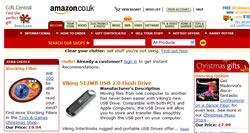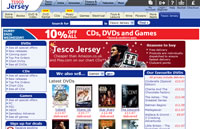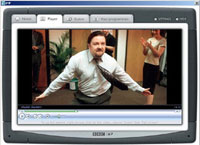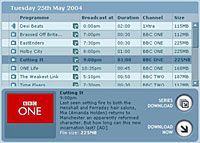Ladies and Gentlemen, start your word processors …
![]() The House of Commons’ Culture, Media and Sport Committee today announced a new inquiry into the challenges and opportunities for the creative industries arising from the development of new media platforms.
The House of Commons’ Culture, Media and Sport Committee today announced a new inquiry into the challenges and opportunities for the creative industries arising from the development of new media platforms.
For the purposes of the inquiry, the term “creative industries” includes music, visual broadcasts, sound broadcasts, film, graphic art, design, advertising, fashion and games software.
The Committee is particularly interested in receiving evidence on the following issues:
- The impact upon creative industries of recent and future developments in digital convergence and media technology
- The effects upon the various creative industries of unauthorised reproduction and dissemination of creative content, particularly using new technology; and what steps can or should be taken – using new technology, statutory protection or other means – to protect creators
- The extent to which a regulatory environment should be applied to creative content accessed using non-traditional media platforms
- Where the balance should lie between the rights of creators and the expectations of consumers in the context of the BBC’s Creative Archive and other developments
Written submissions are invited from any interested organisation or individual by Thursday 19 January 2006.
 Submissions should give the name and postal address of the person sending the memorandum and should state whether it has been prepared specifically for the Committee. If the memorandum is from an organisation rather than an individual, it should briefly explain the nature and membership of the organisation. The Committee may publish some of the submissions it receives.
Submissions should give the name and postal address of the person sending the memorandum and should state whether it has been prepared specifically for the Committee. If the memorandum is from an organisation rather than an individual, it should briefly explain the nature and membership of the organisation. The Committee may publish some of the submissions it receives.
For more guidance on the preferred format, see http://www.parliament.uk/commons/selcom/witguide.htm
Submissions should be sent to the Clerk of the Committee at the address below.
Kenneth Fox
Clerk of the Culture, Media and Sport Committee
House of Commons
7 Millbank
London SW1P 3JA
[email protected]
Luke Gibbs writes for Ofcomwatch.
 The rollout of ADSL2+ in the UK appears to be going through a reverse-hype process, with people saying it’s not going to deliver high speeds to most people. That may be partially true, but in urban areas where people are within 1.5Km of the exchange they should get 20Mb/s+.
The rollout of ADSL2+ in the UK appears to be going through a reverse-hype process, with people saying it’s not going to deliver high speeds to most people. That may be partially true, but in urban areas where people are within 1.5Km of the exchange they should get 20Mb/s+. 3. The significance (or lack thereof) of these reports should be plainly stated. Similarly, if Ofcom is not necessarily endorsing a particular report’s conclusions, it should plainly state that fact. An ‘evidence-based’ regulator should be very clear as to how it treats these findings made by third parties. If the Scientific Generics report is not endorsed by the Ofcom Board, but it is merely one of many research inputs on the issue of digital switchover costs, then Walls’ claims are clearly overstated. However, it’s hard to blame the press when reports like these are published on the Ofcom website with no disclaimers, giving them the imprimatur of Ofcom approval.
3. The significance (or lack thereof) of these reports should be plainly stated. Similarly, if Ofcom is not necessarily endorsing a particular report’s conclusions, it should plainly state that fact. An ‘evidence-based’ regulator should be very clear as to how it treats these findings made by third parties. If the Scientific Generics report is not endorsed by the Ofcom Board, but it is merely one of many research inputs on the issue of digital switchover costs, then Walls’ claims are clearly overstated. However, it’s hard to blame the press when reports like these are published on the Ofcom website with no disclaimers, giving them the imprimatur of Ofcom approval. Following the BBC confirmation of High Definition Television (HD) trials for 2006, all of a sudden it feels like there’s a plethora of High Definition services and trials in the UK next year.
Following the BBC confirmation of High Definition Television (HD) trials for 2006, all of a sudden it feels like there’s a plethora of High Definition services and trials in the UK next year. Speaking at the same event, Richard Freudenstein, CEO, BSkyB, was careful not to mention what the monthly subscription will be for HD on Sky when it launches. He spent his time talking up the platforms’ HD bouquet that will include Sky One, sports and movies with an HD Sky Plus box and plenty of storage capacity.
Speaking at the same event, Richard Freudenstein, CEO, BSkyB, was careful not to mention what the monthly subscription will be for HD on Sky when it launches. He spent his time talking up the platforms’ HD bouquet that will include Sky One, sports and movies with an HD Sky Plus box and plenty of storage capacity. Confusion still reigns
Confusion still reigns The commercial rivalry between two UK online retailers has spilt over into the world of advertising, or more precisely the heady world of UK advertising adjudication, run by the Advertising Standards Authority.
The commercial rivalry between two UK online retailers has spilt over into the world of advertising, or more precisely the heady world of UK advertising adjudication, run by the Advertising Standards Authority. The ASA batted the first complaint aside, but felt the second held water despite Tesco putting up the follow argument. Their long winded thinking can be cut down to … As no single CD or DVD was priced over £19 (thank goodness – our addition), to qualify for the Amazon free delivery, it entailed ordering more than one item.
The ASA batted the first complaint aside, but felt the second held water despite Tesco putting up the follow argument. Their long winded thinking can be cut down to … As no single CD or DVD was priced over £19 (thank goodness – our addition), to qualify for the Amazon free delivery, it entailed ordering more than one item. But this jiggery pokery didn’t get them off the hook and the ASA found against them.
But this jiggery pokery didn’t get them off the hook and the ASA found against them. Partially arguing against the UK ban on advertising by organisations that attempt to “influence public opinion on a matter of controversy”, she says her group will challenge the ban. Allen is right in some respects when she says:
Partially arguing against the UK ban on advertising by organisations that attempt to “influence public opinion on a matter of controversy”, she says her group will challenge the ban. Allen is right in some respects when she says: Much has been made of what have been reported as poor results at BskyB (Profits announced on Friday 4 Nov 05 saw a pre-tax rise of 13.6% to £200m), intense competition is given as the cause of the lower than hoped for growth in subscribers.
Much has been made of what have been reported as poor results at BskyB (Profits announced on Friday 4 Nov 05 saw a pre-tax rise of 13.6% to £200m), intense competition is given as the cause of the lower than hoped for growth in subscribers. Most would consider a UK satellite rival needs to be positioned to use the same satellites as Sky services that’s Eurobird and Astra 2. If you move away from their orbital positions, you’re going to have to duplicate a whole load of services across two platforms with the expense that will entail.
Most would consider a UK satellite rival needs to be positioned to use the same satellites as Sky services that’s Eurobird and Astra 2. If you move away from their orbital positions, you’re going to have to duplicate a whole load of services across two platforms with the expense that will entail. The other group that would be interested are the ‘churn’ which are now reported by Sky as around 11%. These are subscribers who are leaving their Bskyb packages – but they’re really already on the Sky Freesat as unless someone comes and takes away their Set- top-box and mini-dish. They’ll get many of the FTA (Free To Air) services like ITV3 that aren’t available on analogue terrestrial and, for a small charge, can obtain a viewing card that will allow them to view those encrypted services like Channel 5, Channel 4, ITV1 and ITV2.
The other group that would be interested are the ‘churn’ which are now reported by Sky as around 11%. These are subscribers who are leaving their Bskyb packages – but they’re really already on the Sky Freesat as unless someone comes and takes away their Set- top-box and mini-dish. They’ll get many of the FTA (Free To Air) services like ITV3 that aren’t available on analogue terrestrial and, for a small charge, can obtain a viewing card that will allow them to view those encrypted services like Channel 5, Channel 4, ITV1 and ITV2. Hash showed off Animation Master which is a very simple (if you believe the demos) animation package. It has a huge library of pre-built characters, objects and even things like types of walks for the characters. Lip syncing even looked easy. Though the package is simple, you probably need some basic creative skills and understanding of animation to do anything sensible with it. Visit their Website and look in the gallery, the video of “I will survive” of Gloria Gaynor fame is a true classic.
Hash showed off Animation Master which is a very simple (if you believe the demos) animation package. It has a huge library of pre-built characters, objects and even things like types of walks for the characters. Lip syncing even looked easy. Though the package is simple, you probably need some basic creative skills and understanding of animation to do anything sensible with it. Visit their Website and look in the gallery, the video of “I will survive” of Gloria Gaynor fame is a true classic. LaCie had lots of disk systems on offer (firewire, USB and Ethernet) offering easy access to multi-terrabytes of data. An external 5 1/4″ drive (the size of a CD-ROM drive) can hold up to 1TB (big disk) while the double width bigger disk extreme can hold up to 2TB. There’s also external RAID drives, the biggest F800 holds up to 2TB supporting Firewire 800 (up to 80MB/s transfers) and the biggest S25 support 160MB/s and up to 2.5GB (which is 3GB internal) both support hot-swappable drives. The newest addition is the mini which looks just like a Mac mini and sits underneath it (and can be stacked with more minis), each one containing up to 250MB of disk.
LaCie had lots of disk systems on offer (firewire, USB and Ethernet) offering easy access to multi-terrabytes of data. An external 5 1/4″ drive (the size of a CD-ROM drive) can hold up to 1TB (big disk) while the double width bigger disk extreme can hold up to 2TB. There’s also external RAID drives, the biggest F800 holds up to 2TB supporting Firewire 800 (up to 80MB/s transfers) and the biggest S25 support 160MB/s and up to 2.5GB (which is 3GB internal) both support hot-swappable drives. The newest addition is the mini which looks just like a Mac mini and sits underneath it (and can be stacked with more minis), each one containing up to 250MB of disk. Exclusive animated footage from Gorillaz Demon Days Live in Manchester will be available ‘on demand’ via the red button on digital television for seven days, courtesy of BBC Radio 1.
Exclusive animated footage from Gorillaz Demon Days Live in Manchester will be available ‘on demand’ via the red button on digital television for seven days, courtesy of BBC Radio 1. Dan Duncombe, Digital Media Manager at Parlophone, comments, “Giving fans the ability to access content across a number of digital platforms is a key part of the Manchester events. These shows are groundbreaking and working with Radio 1 has allowed us to take this further in terms of reach as well as interactivity. Gorillaz fans throughout the world can access and interact with this exclusive audio and visual content, making it a truly global and multi platform event.”
Dan Duncombe, Digital Media Manager at Parlophone, comments, “Giving fans the ability to access content across a number of digital platforms is a key part of the Manchester events. These shows are groundbreaking and working with Radio 1 has allowed us to take this further in terms of reach as well as interactivity. Gorillaz fans throughout the world can access and interact with this exclusive audio and visual content, making it a truly global and multi platform event.” Despite so much current talk from the UK Telco’s and Sky on the magic that will provide an on demand broadcast TV proposition in the UK, tangible evidence of a working model beyond KiT in Hull and Homechoice is pretty sparse.
Despite so much current talk from the UK Telco’s and Sky on the magic that will provide an on demand broadcast TV proposition in the UK, tangible evidence of a working model beyond KiT in Hull and Homechoice is pretty sparse. Despite the somewhat limited selection of programmes, which I’m told is largely down to copyright issues, it seems a positive move for a public sector broadcaster actually providing a service and solving the ‘problem’ of letting you see a programme you forgot to record or you later discover is worth viewing.
Despite the somewhat limited selection of programmes, which I’m told is largely down to copyright issues, it seems a positive move for a public sector broadcaster actually providing a service and solving the ‘problem’ of letting you see a programme you forgot to record or you later discover is worth viewing. The BBC is thinking beyond the present Windows-only solution. Speaking recently in London the BBC’s Project Director for iMP Ben Lavender reinforced the BBC philosophy of platform agnosticism and spoke of the desire to work on Apple and Linux solutions when DRM issues can be satisfactorily dealt with.
The BBC is thinking beyond the present Windows-only solution. Speaking recently in London the BBC’s Project Director for iMP Ben Lavender reinforced the BBC philosophy of platform agnosticism and spoke of the desire to work on Apple and Linux solutions when DRM issues can be satisfactorily dealt with.